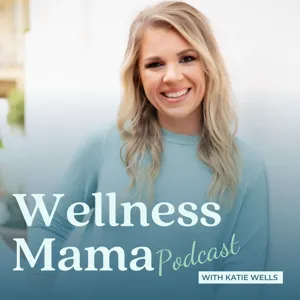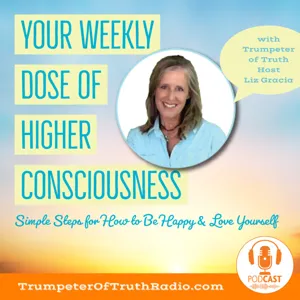Donna Jackson Nakazawa, author of Girls on the Brink joins us to talk about the drivers behind sky-high rates of anxiety and depression among young people—and how bio-synchronicity and emotional attunement might be the answer.
Bonfire Digital Wellness has a diverse team of seasoned, compassionate school counselors, ready to coach your teen. Check it out today and take advantage of a 1-month FREE trial: BonfireDW.org/talkingtoteens
Full show notes
Nowadays, kids have 24 hour access to the internet—meaning they can scroll through pictures of perfect models on Instagram, check the ever-terrifying news or log on to a chatroom with random strangers at any time of the day! And while this allows them to connect with others and learn more about the world, it can also lead to an overwhelming level of exposure to everything from cyberbullying to predators. Without parents there to steer them clear of danger, are kids bound to get into trouble?
Not to mention that constant use of the internet–especially social media–can have seriously adverse effects on a kid's mental health. The perpetual pressure to live up to the images of perfection they see online has been linked to sky-rocketing growth in depression and anxiety disorders among kids. And it’s young women in particular who face the most expectations online–the expectation to be sexual without being too sexual, the need to have the perfect body, and the constant fear that they aren’t going to fit in with all their other peers.
So how can we help girls who are struggling with the stressors of being online? We’re asking Donna Jackson Nakazawa, author of Girls on the Brink: Helping Our Daughters Thrive in an Era of Increased Anxiety, Depression, and Social Media. Donna is a science journalist who’s written for Wired, The Washington Post, The Boston Globe, and more! She’s also a mom, and was inspired to dive deeper into girls' mental health when she saw how much her daughter was affected by the perils of the online world.
In our interview, we’re discussing how estrogen and the female immune system contribute to the development of mental health disorders among young girls, especially in our modern, media-driven world. Plus, how adverse childhood experiences affect kids into adulthood, and what we can say to help our teen girls feel supported during this stressful time.
The Estrogen Effect
The internet can add stress to anyone’s life…so why do we need to focus on young women? Research shows that women are developing mental health disorders at an alarming rate compared to their male counterparts, explains Donna, and this ties directly into how much these young women use social media. But why?
Donna explains that estrogen is the culprit. Since the dawn of the human race, women’s bodies have responded to stress with an intense surge of estrogen. This is because women typically have smaller bodies and even smaller organs than men, says Donna, and therefore need a stronger immune response to combat threats! This is why girls often have stronger responses to vaccines and have longer-lasting reactions to viruses like Covid-19.
When their brains are still developing, girls are constantly looking to the world to sense if they’re safe or not….and with social media and the internet, girls often feel that they aren’t safe! This bumps their stress levels, leading their estrogen to provoke an immune response that floods their bodies and brains with inflammation. No wonder so many young girls are developing chronic physical and mental health conditions like autoimmune disorders and depression, she says.
But that’s not even the worst of it! Donna explains how adverse childhood experiences can make this immune response even more harmful to young girls.
Long Term Effects of Childhood Experiences
Women have more robust immune responses to stressors because of their hormones, says Donna, but there are other factors that can cause people to have intense reactions to stress. One of these factors is adverse childhood experiences. When we think of childhood trauma, we often think of intense moments like divorce or physical abuse–but Donna explains that these traumas can be milder and more common than we might expect. Feeling bullied by siblings, having a parent with substance use issues or experiencing mild parental neglect can all be adverse childhood experiences, she explains.
With their brains still in development, young girls are perpetually trying to discern whether or not they are safe. Because these adverse experiences are often chronic and unpredictable, it can send a message to kids' minds that they are frequently in danger. Donna explains that this is largely a product of evolution–social ostracization of any kind could be extremely dangerous if it meant they were cast from the group without food or protection from predators. And although kids are no longer typically in physical danger from emotional neglect or bullying, their immune system still behaves as though they are!
The more adverse experiences girls experience in childhood, the more their brain becomes acclimated to responding to stress, and the more intense it’s immune response. This causes chronic mental and physical health disorders to develop among young women at an alarming rate–and social media is not helping, says Donna. That’s why she believes parents need to give their kids the least traumatic childhood possible, so they don’t develop serious conditions like anxiety or depression as teens or adults.
But how can we keep our homes as free from trauma as possible? And what can we say to teen girls who are really going through it? Donna helps us see how parents can step in to help girls when they’re at their lowest.
Helping Our Girls Heal
The first step to helping our girls is to heal ourselves, says Donna. When we’ve dealt with our own traumas and stopped our impulsive reactions, we can be there to calmly guide our kids without passing our trauma on. The developing brains of our kids are constantly looking for reassurance from caregivers, so if we can make kids feel safe, they’ll live happier, healthier lives.
In the episode, Donna explains how kids watch parents react to stressful situations and then learn to practice the same patterns themselves–a scientific concept known as bio-synchrony. If we yell, freak out or bully others when we’re in distress, our kids take notice–and will likely carry that pattern on into adulthood themselves. If we can learn to center ourselves and practice techniques that take us out of fight or flight mode and back into a level head, Donna explains that we’ll be able to teach our kids to do the same.
If your daughter is struggling, Donna recommends bringing some positivity back into her life. In our interview, we discuss the value of praising our kids in healthy ways. Donna encourages us to remind our kids that they are intrinsically valuable, and can accomplish anything they hope to do if they work hard. It’s never truly wise to measure their success against other kids’–even if you’re telling them how much better they are! This only leads to a life of comparing themselves to others, and despairing when they fall short.
This doesn’t mean we should overshelter our kids or make life too easy for them, says Donna...











